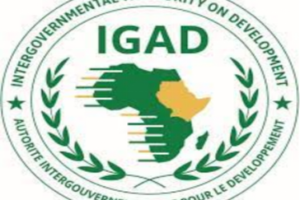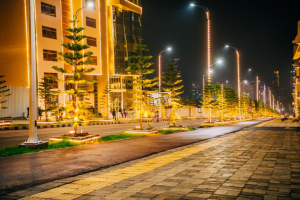
BY EYUEL KIFLU
For the last few years, Ethiopia has been making attempts to break away from authoritarianism and move to democracy. Although faced with a bevy of challenges, the transition process brought some positive changes.
Among others, ensuring accountability for past and recent alleged human rights abuses has been a top priority in the country.
It is to be recalled that, the Ethiopian government in 2019 announced the establishment of a truth and reconciliation commission to investigate and address past human rights violations. Several high-profile figures were arrested on charges of human rights abuses and theft.
Despite the incumbent’s measures, progress in implementing Transitional Justice (TJ) has been slow and uneven. And, there is still much work to be done to ensure accountability and promote reconciliation and healing.
The government has also acknowledged the need to prioritize transitional justice, and attempts have been made to establish a transitional framework too. The establishment of the Ethiopian Reconciliation Commission and the Ethiopian National Dialogue Commission is a solid instance. Taking lessons from this and building upon the provisions stipulated in Article 10(3) of the agreement for lasting peace through a permanent Cessation of Hostility, the Ministry of Justice has recently put out a draft policy document for a complementary transitional justice initiative.
In so doing, the Ministry of Justice announced last week that the charges against TPLF civil and military leaders who were accused of crimes have been dropped. According to the Pretoria peace deal, crimes related to the conflict in the northern part of the country should be considered within the framework of transitional justice, taking into account the international experience
Tigray’s interim administration’s discussion with the federal government and other stakeholders in Addis Ababa was successful in terms of making the peace process complete, according to officials. The release of prisoners is one of the issues that have been given attention and discussed. Different arrested TPLF and military leaders were freed on the heels of the discussion.
Implementing the African transitional justice policy is one area in which parties to the Pretoria peace accord agreed upon. The Ethiopian Transitional Justice (TJ) is also adapted from the African Union policy. Besides, bringing permanent and sustainable peace, preparing a draft transitional justice based on justice, truth, and the spirit of reconciliation is the main objective of transitional justice. So, TJ is a main contributor to the deal, Kalkidan told The Ethiopian Herald.
Before publicizing the TJ optional policy, we are conducting research that answers the question, “What does TJ mean?” And eliminate avoidable errors, Kalkidan Derje, a member of the TJ working group and an expert, said
Exploring the experience of other countries is vital to draw lessons and learn from their mistakes and lay the groundwork for the effectuation of the policy, she added. The TJ that Ethiopia needs to implement is in line with Ethiopia’s culture and norms. It’s more effective to resolve our problems within our cultural context.
After deciding that implementing TJ is important for the country, the group is working on a draft of the TJ policy. To pave the way for national healing, protect human rights enforce rules and regulations; TJ is the top priority now.
The group is now at a stage of collecting different ideas by holding discussions with stakeholders and people, which would serve as input for the policy draft, she explained. “The short-term goal is to draft the policy, and now we are working toward that through discussions, and the capacity of the country to implement TJ will depend on the future outcomes that we achieve,” according to her.
A sensationalise workshop on Ethiopia’s transitional justice initiative held last week was one step in ECSOC’s readiness to contribute to the successful conduct of TJ. The workshop was held in collaboration with the Institute for Security Studies (ISS). In the workshop, different papers were presented and discussed by participants and experts.
The primary responsibility of the government is to oversee the TJ from inception to implementation. That means it has the responsibility to lead, coordinate, and implement the daunting task. Similarly, it has also a role to back the effectuation of the TJ by establishing institutions and making a different decree without intervention, according to Misganaw Mullugeta, a member of the TJ Working Group of Experts
“The role of government in TJ must be limited so that it does not use it for political gains. Though the political will is important from the government’s side to prepare and enforce TJ, it must also allow an independent and legitimate implementation of this national work.”
The incumbent should create a conducive platform for debate, discussion, and advocacy on TJ. Also, participation and consultation to shape the design of an overarching TJ policy and its implementation are other tasks of the government. The regional governments will, for their part, facilitate the process and identify the victims based on their region, he explained at the workshop
The implementation of TJ requires the involvement of pertinent stakeholders. In order to create awareness in society, the role of the Ethiopian Civil Society Organization Council (ECSOC) is obligatory. As a counselor of CSOs, it is easy to work with CSOs. These organizations are more helpful in creating awareness in society because of their proximity to them.
Non-state actors such as civil society, the media, the private sector, religious institutions, and others have their own roles to play in realizing the mammoth work. CSOs have a big role to play to make TJ a success, Zelalem Eshetu, policy and legal advisor at ECSOC. These entities can represent their community and advocate for the importance of transitional justice.
Also, CSOs can help the process by conducting dialogue with the government and different stakeholders, echoing the voices of victims and survivors in the implementation of TJ. The organizations may work to lobby different international organizations to support the TJ process, he added
Similarly, the entities are monitoring the TJ process from the designing stage to implementation. They would later report the results. In addition, the organizations are also taking part in the provision of humanitarian aid to war-ravaged areas by supplying medication, sanitation, and other daily needs for victims. They are working on educating the people and doing research on TJ, Zelalem said.
In a similar vein, the private sector is also included in the TJ process regarding accountability and in compensating the victims. Also, it may participate in peace-building and reconstruction efforts in war-ravaged areas. As a whole supporting the TJ with finance is expected from private sectors, he elucidated
The aim of the workshop was to create awareness of the nature and concept of TJ, the system and experience that it provides, and the role of different governmental and non-governmental organizations in the implementation of this vital undertaking. The workshop was attended by all regional state justice experts.
THE ETHIOPIAN HERALD THURSDAY 6 APRIL 2023





